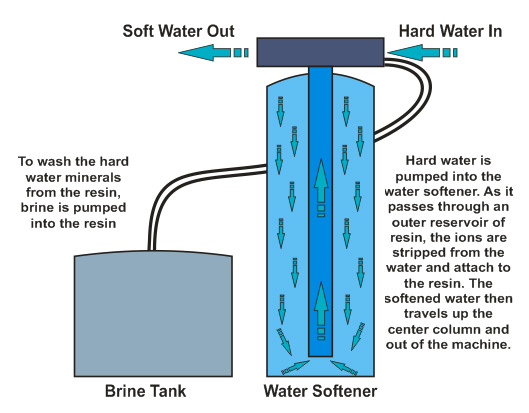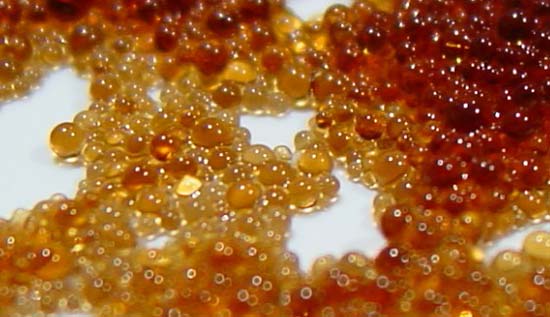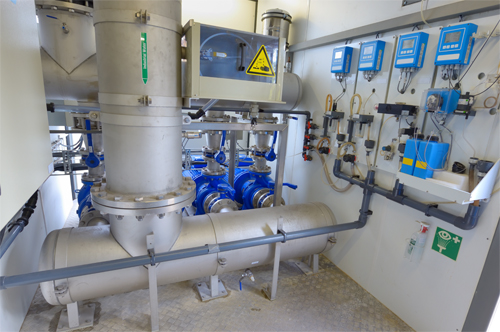Common Applications of Ion Exchange Resins


Ion-exchange resins offer a convenient and low-cost option for purification, isolation and decontamination of solutions containing ionic species. In addition to the lower cost ion exchange processes are reversible in nature and the exchange resin can be regenerated by simply treating with a solution containing excess of the displaced ions.
Typical laboratory applications include separation of organic acids and biomolecules such as peptides and proteins. However, there are a number of industrial applications ranging from water treatment, purification processes in metallurgical industry, pharmaceuticals, foods and beverages, nuclear and semiconductor industries.
Water Softening
Water treatment is the most popular application of ion exchange resins. Hard water comprises of an excess of Calcium and Magnesium salts and the resin comprising of sodium ions at active sites is used to replace such calcium and magnesium ions. After softening the resin is regenerated by a solution rich in sodium ions such as sodium chloride. The sodium ions get back to the active sites on the resin which can be reused for further softening.
Water Purification
In this process ion exchange resins are used to remove toxic heavy metals such as lead and cadmium from solution. Mixed bed resins with intermittent regeneration cycles can be used for de-mineralization of cationic and anion impurities.
Metal Purification
Ion exchangers are used routinely for purification of elements such as uranium from plutonium. For years ion-exchange was routinely used but solvent extraction has also made an important contribution in separation of lanthanide and actinide group of elements. Ion exchange also finds an important application in processing of nuclear fuel and reprocessing of radioactive waste materials.
Pharmaceuticals
Ion exchange resins are used for purification of antibiotics from fermentation broths, as excipients in formulations for controlled release of active ingredients and for masking of noxious taste and smell of some drug compounds.
Juices and Beverages
Ion exchange resins find a number of applications in fruits and beverage industry for improving taste and flavour through removal of undesirable components. Common applications include removal of trace metals, bad taste and smell, decolouration and primary treatment of water used in manufacture of juices and drinks.




Responses